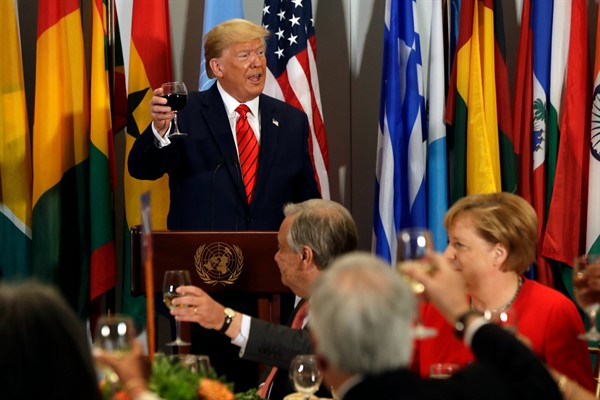How has the multilateral system fared in the Trump era? At first glance, the answer must be “poorly.” Donald Trump has attacked and boycotted numerous international agreements and arrangements as U.S. president, ranging from the Paris Agreement on climate change to the World Health Organization. America’s relations with China have worsened dramatically at the United Nations and other forums, culminating in the two powers’ furious disputes over COVID-19. In New York and Geneva, diplomats fret about a growing “crisis of multilateralism.”
Much of this sorry story was entirely predictable. In September 2016, when a Trump presidency still seemed improbable even as Hillary Clinton’s lead in the polls was narrowing, I wrote in World Politics Review that the Republican candidate, if elected, was liable to pull out of U.N. forums he didn’t like and cut funds to multilateral initiatives. I also noted that China would become an “essential player” at the U.N., offering “alternative leadership” to the U.S.
Yet while these predictions have proven close to the mark, the last four years have not been entirely bad for international cooperation. Washington has failed to persuade many other countries to join its attacks on multilateral mechanisms. Instead, worried by both Trump’s bullying tactics and China’s rising assertiveness, many states have invested political capital in defending the international system.

